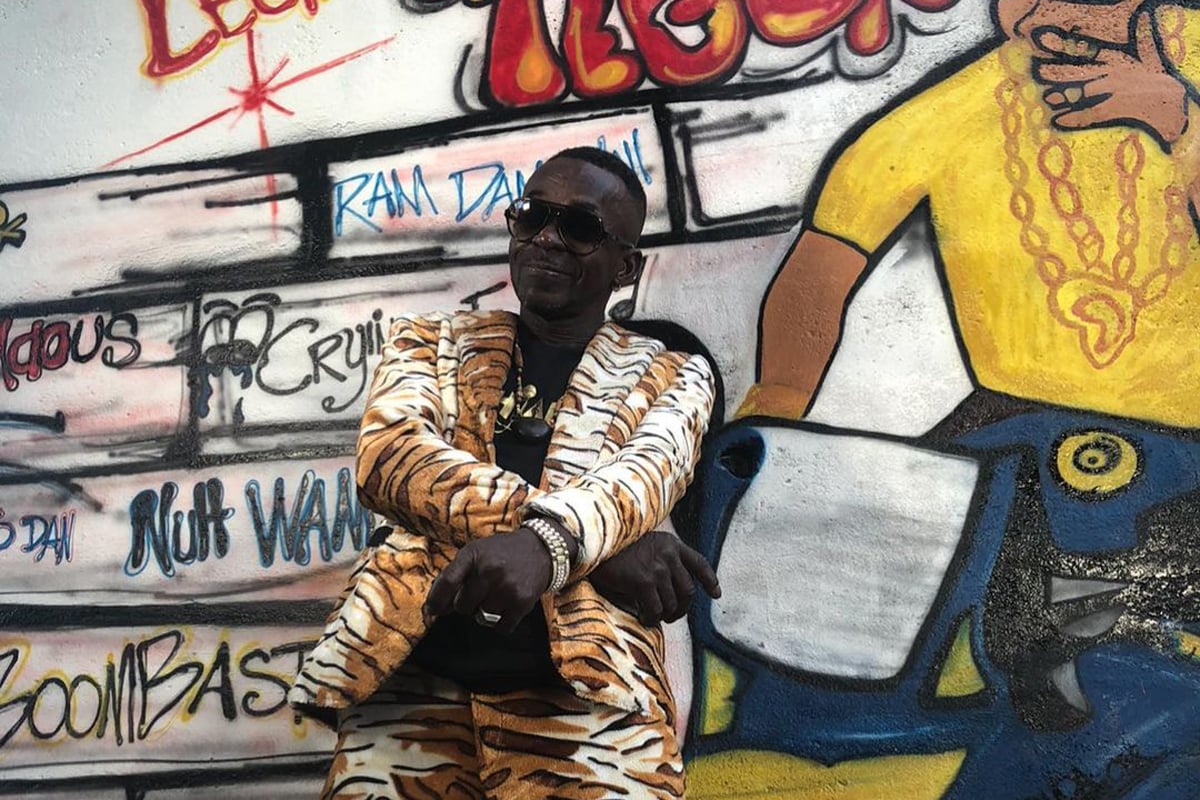Tiger Suffers Minor Stroke, Family Seeks Financial Assistance

Dancehall icon Tiger reportedly suffered a second minor stroke two weeks ago, a setback that has forced his family to seek financial aid to help defray his medical expenses.
“It was a minor stroke, thank God. It affected his left side and he is walking very slowly. He needs some assistance with funds to deal with his medical expenses because he has some blood work to do and other stuff, and it is very challenging,” his daughter Rhialty, who is also a Dancehall artist, told DancehallMag.
Tiger, 61, a dancehall icon known for songs such as No Wanga Gut, When and No Puppy Love, suffered his first stroke years ago. Born Norman Washington Jackson, he has struggled with his health for decades after a near-fatal car accident in 1994.
Rhialty said that the stroke was sudden but thankfully, not critical.
“My father was with my brother at the time, and my brother told me he passed out for a few and was gasping for breath. The following day, I noticed he was speaking slowly and moving differently. I took him to the doctor and he checked him up and he diagnosed a stroke and high blood pressure,” she said.
The financial cost of dealing with his medical expenses has proven to be quite challenging to the family.
“Is me everything on in terms of financial support, and Tiger doesn’t want me to reach out, but I have to , there is no help and I can’t do it alone. I set up a Real Helping Hands account so I am asking the family to help,” she said.
Tiger, first recorded as a singer under the name Ranking Tiger, his first single being Why Can’t You Leave Dreadlocks Alone? in 1978.
Then in the early 1980s, he began working as a deejay with the Black Star sound system, often performing alongside fellow deejay Bruk Back and singer Anthony Malvo. Then he blew up like a Roman Candle in 1985 with several local hits including “No Wanga Gut” and “No Puppy Love”. He was signed by Mango Records who released his first album, Me Name Tiger, in 1986.
The legend of Tiger grew with his bombastic live performances, and he recorded for producers including Harry J, King Jammy, Gussie Clarke, Sly & Robbie, Philip “Fatis” Burrell and Donovan Germain. In 1989, he became one of the first dancehall artists to cross over into the US hip hop scene when he did a combination with the Fat Boys on “T’ings Nah Go So”.
Success continued in the 1990s and he was signed by Columbia Records’ short-lived Chaos imprint. His only album for the label was ‘Claws of the Cat’ in 1993. In the early 1990s, he scored big with the hit song, ‘When’.
He revealed during an interview with Loop News that a freestyle was the inspiration of ‘When’ which is arguably his most enduring hit.
“I was down by Mixing Lab with Roy Francis and Steelie and Clevie and we were going to record an album. Steelie ask me when mi going to build a new tune and mi say ‘when when when’, and mi just start freestyle, and I had just come from Japan so mi just freestyle it too,” he said.
He revealed that the combination, ‘Come Back To Me’ featuring Anthony Malvo was a tribute to Pinky, the sister of Dancehall Queen Carlene. Pinky and her sister also made appearances in the music video.
“She (Pinky) was a gift from God, mi refuse it and abuse it, so she did left me, so mi did do the tune fi try win her back,” he said.
After his accident in 1994, there was an out-of-court settlement in 2002, but it was not the sum that Tiger had requested given his stature as a major dancehall artist at the time and the career-ending nature of his injuries.
“I had three bank accounts, all ah dem empty out, four kids to go to school, and medical bills from UC (UHWI) of almost four million,” he told Loop News.
He said he felt abandoned by his dancehall friends, including Capleton, who he claimed he used to bring to studio back in the 1990s. “After mi meet in the accident and wake up and see that all who was there when I was healthy was not there now that mi almost dead, it was …hard…I didn’t want to stay here, something wrong,” he said.
